15 Things You’re Doing That Will Get You Kicked Out of a National Park
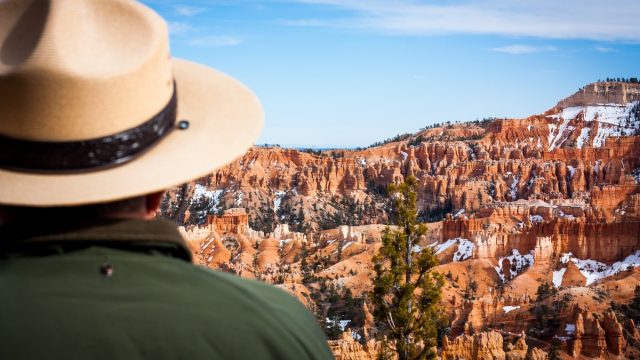
Need an escape from the expectations and regulations of life? Taking a breather by visiting a national park is one of the best remedies we can think of to feel free from it all. But, though you have more space to roam and fewer eyes watching, not even nature is a lawless place. That’s right—while you’re enjoying the simple pleasures of the great outdoors, there are still policies—albeit, weird ones. As odd and silly as some may sound, these national park rules are in place to keep you and other visitors safe. So read, laugh, and heed—lest you break a law and get kicked out of a national park on your next adventure.
1
Swearing

It’s important to keep the peace in nature. That’s why it’s against the law to use language, gestures, or acts that are “deemed obscene, menacing, or done in a manner that is likely to inflict injury or incite an immediate breach of the peace” in a national park.
2
Drinking and cycling

Imbibe after riding your bike, please. If you’re riding a bike while holding an open beer—or any other alcoholic drink, for that matter—in a national park, you’re breaking the law.
3
Skiing or sledding on park roads
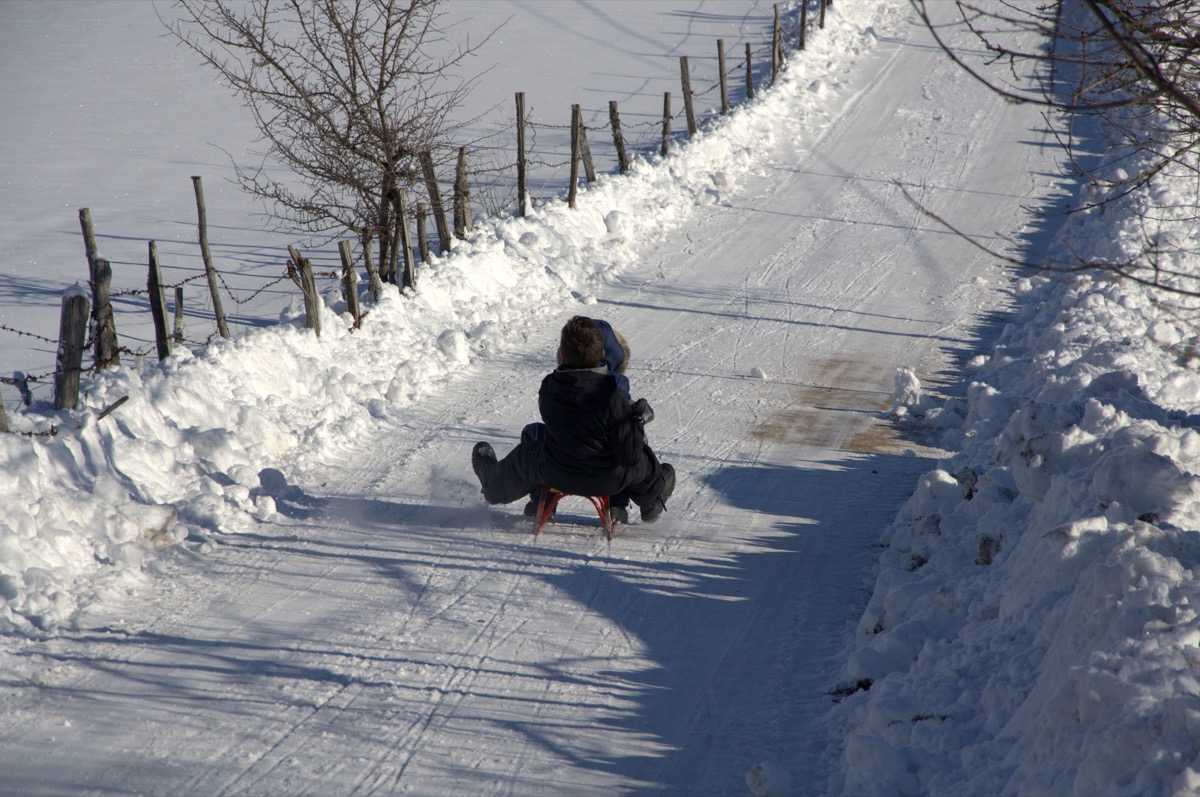
It’s illegal to go tobogganing, skiing, snowshoeing, tubing, or ice skating on any national park roads or parking lots. You’re also not permitted to tow people on skis or sleds behind your car—so don’t get any ideas!
4
Having loud pets

For those who want to bring their furry family members along for a car ride through a national park, please keep them quiet. Federal law mandates that your pet is not allowed to make any noises that might scare the wildlife that call the national park home.
5
Practicing improper bathroom etiquette

If one does not bury their stool more than three inches underground in Shenandoah National Park, it’s considered a federal offense. It would stink to end up behind bars for a bathroom break, right?
6
Bothering animals
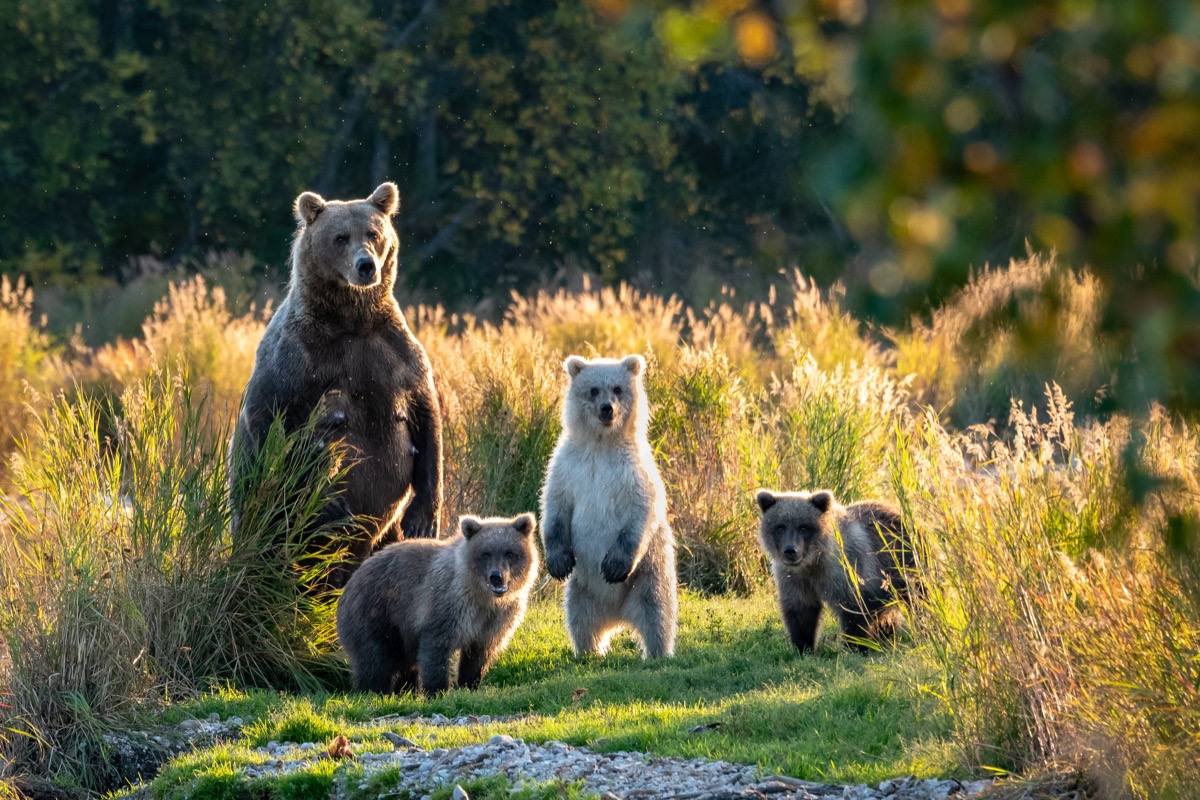
When you see some frisky animals, let them be. It’s actually a federal crime to tease breeding animals in a national park. It’s called privacy for a reason, folks!
7
Galloping on horseback
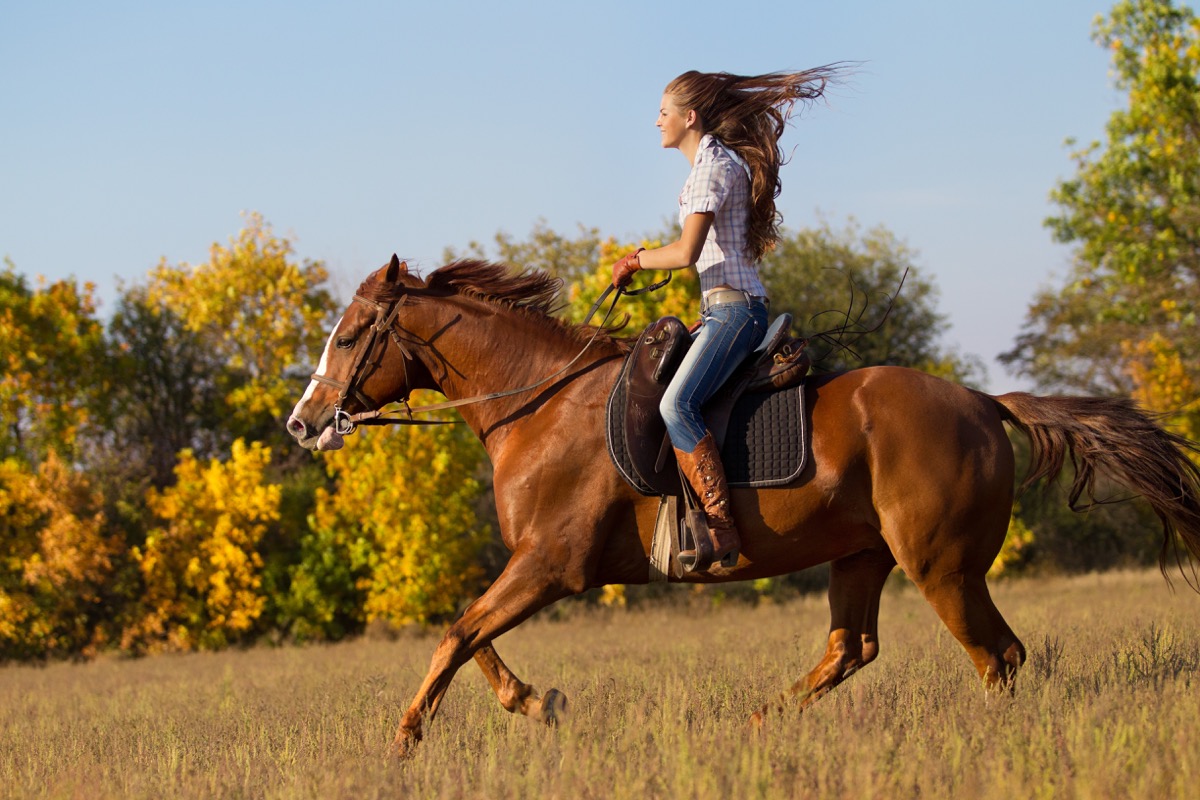
Hey, cowboy—slow down. Turns out that it’s illegal to pass other trail-goers at any pace faster than a slow walk while riding on horseback.
8
Blocking trails or animal crossings
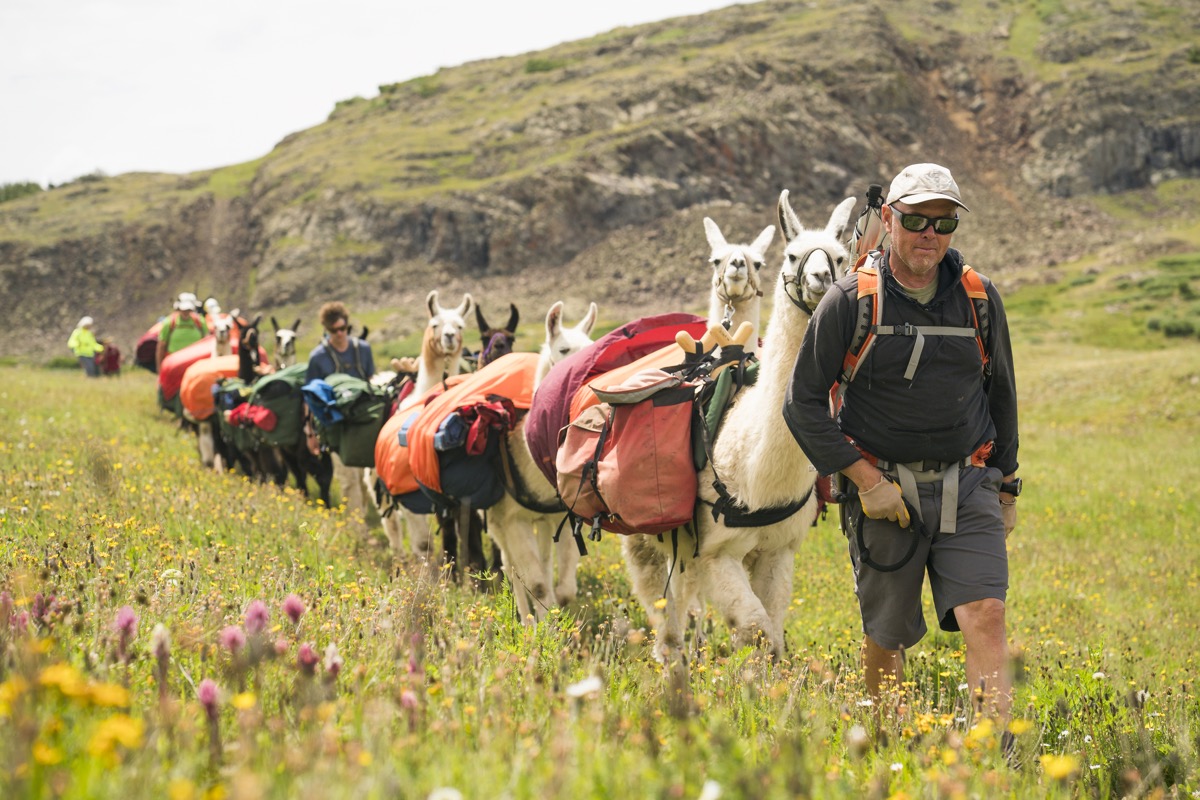
And if you’re hiking, remember that it’s prohibited to obstruct a trail, or to make an unreasonable noise or gesture while horses, mules, llamas, and other pack animals are passing.
9
Leaving an empty campsite
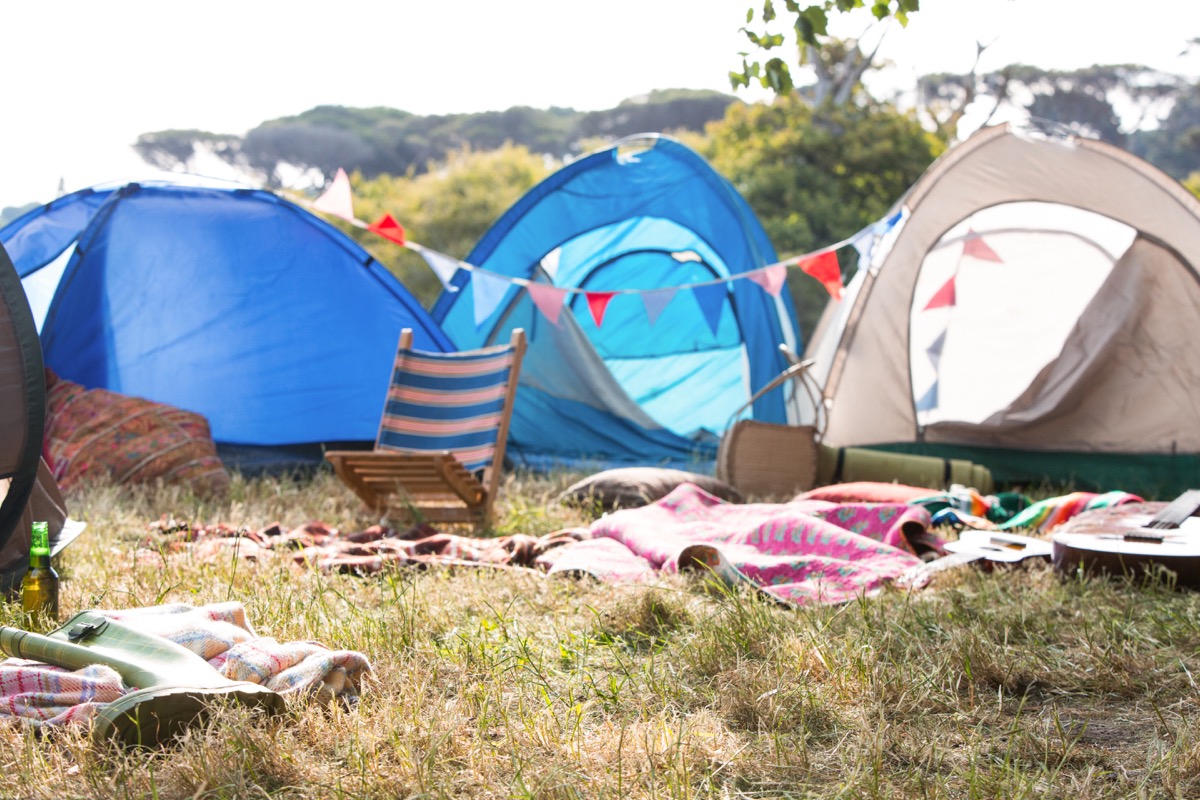
Camping overnight in a national forest or park? Make sure that you make it back to your tent after dinner, as law declares it a crime to have an empty tent the first night you are camping.
10
Washing items in rivers or lakes
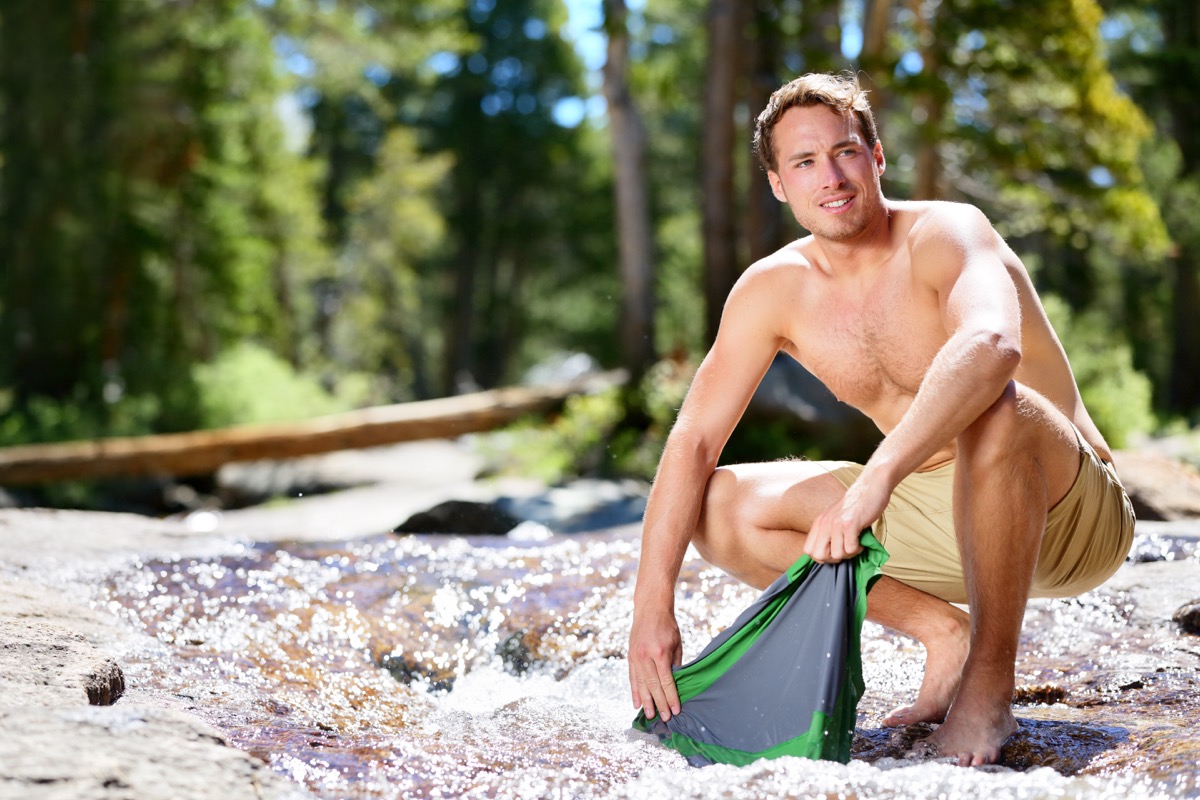
Although it seems like a cute thing that the pioneers would do, please don’t wash your dishes in the river. Federal law states that it’s illegal to wash food, clothing, dishes, or other property at public water outlets, fixtures, or pools—except at those that are designated for that exact purpose.
11
Using a metal detector
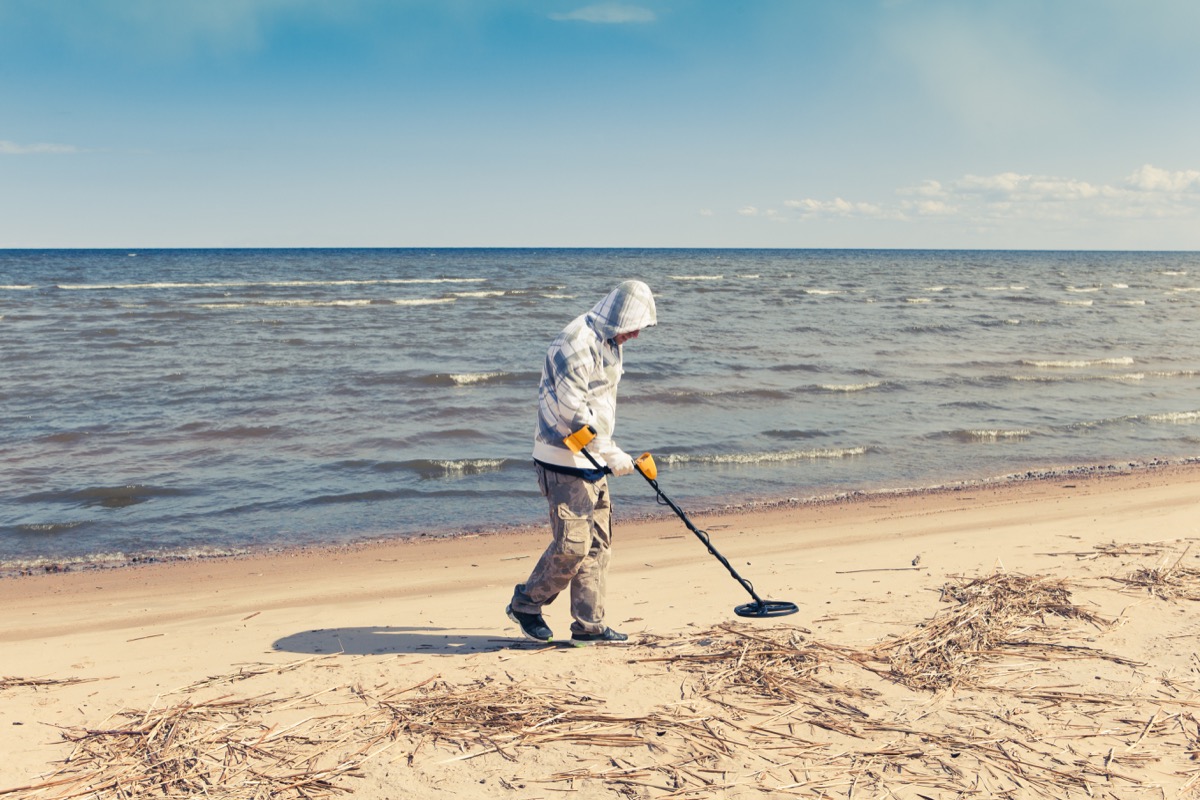
Enjoy treasure hunting? Not in a national park. It’s illegal to possess or use a mineral or metal detector, magnetometer, side-scan sonar, other metal detecting device, or sub-bottom profiler within park borders.
12
Pocketing rocks or plants
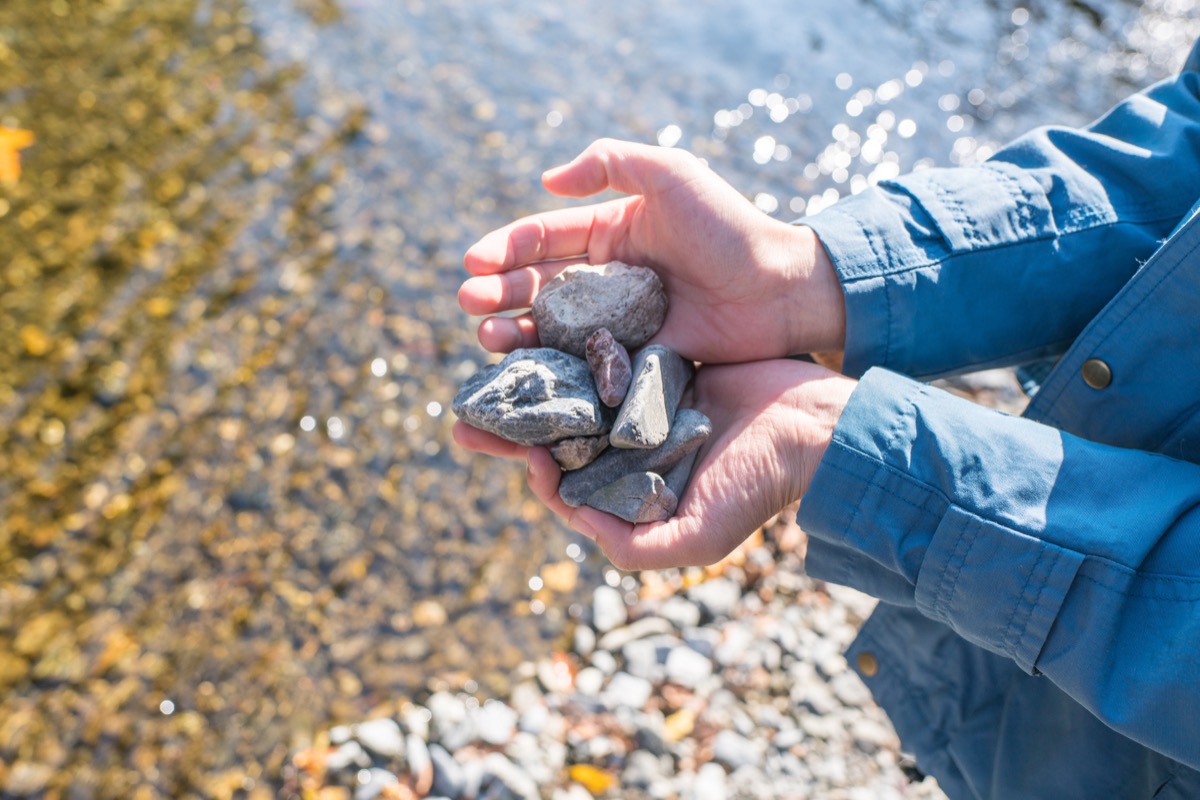
Sorry, collectors, but you have to leave the feathers, antlers, and sticks where you found them, as it’s illegal to take rocks, fossils, plant specimens, or anything else out of a national park.
13
Bringing your pet on boat trips
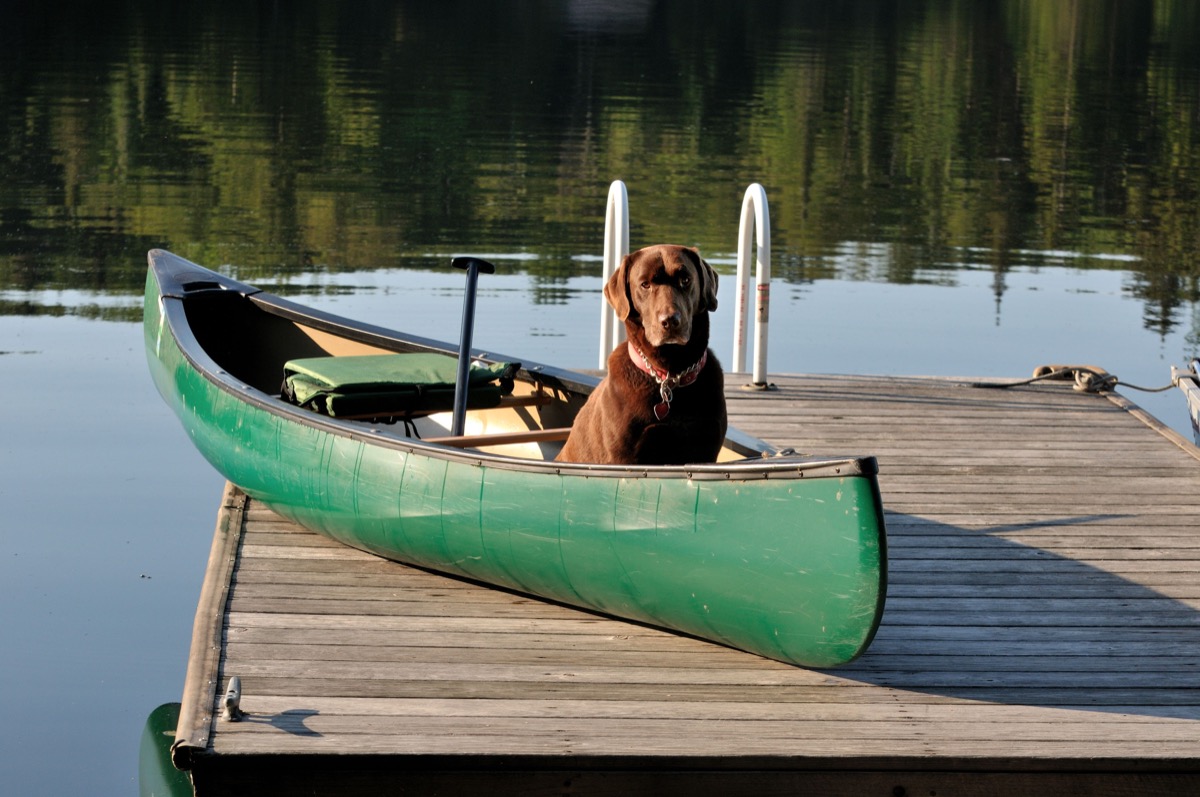
Though we’re sure Fido would love to join, pets aren’t allowed on some excursions. For instance, it’s illegal to take your cat (or dog, for that matter) on a whitewater boat trip through the Grand Canyon.
14
Flying a drone

Yes, your drone is (still) outlawed from flying in national parks. We know you want those gorgeous aerial photos and panoramas, but you’re startling the animals and disturbing the peace for fellow visitors.
15
Littering
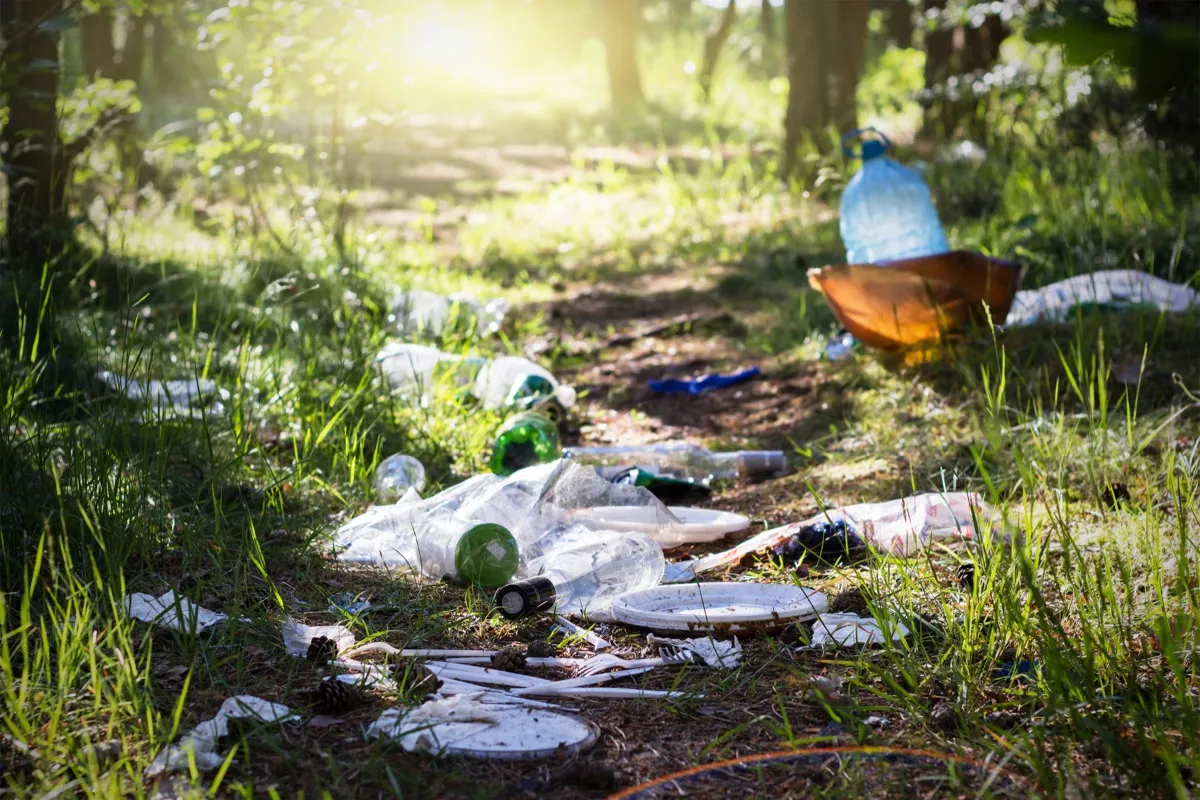
“Leave no trace” is a law. Leaving camping equipment, altering the campsite, or refusing to clean up is prohibited in national parks.
Ready to follow all the rules and plan your next outdoor adventure? Check out the Best National Park in Each State.